9 Novel Prize Winners In India
Launched in the year 1901 by the Nobel Foundation in memory of Sweden scientist Alfred Nobel, it is the world’s highest award in the fields of peace, literature, physics, chemistry, medical science and economics. An amount of $ 1.4 million is awarded with a citation as a prize. Alfred Nobel made a total of 355 inventions, including the invention of dynamite made in 18.Nobel had a great understanding of dynamite and the destructive power of many inventions of this kind of science. At the same time, there was also a strong realization of the need for continuous new research for development.Before his death in December 1897, he reserved a large part of his vast wealth for a trust. He wished that the interest of this money should be awarded every year to those whose work is found to be most welfare for mankind. This prize is given every year by the Nobel Foundation for outstanding contributions to peace, literature, physics, chemistry, medical science and economics, with the same amount of interest deposited in the Swedish bank.The Nobel Foundation was established on 29 June 1900 and from 1901 the Nobel Prize started being awarded.
Today in this list we are including those who are Indians, Indian citizens or originally Indians and they have been awarded the Nobel Prize –
Rabindranath Tagore
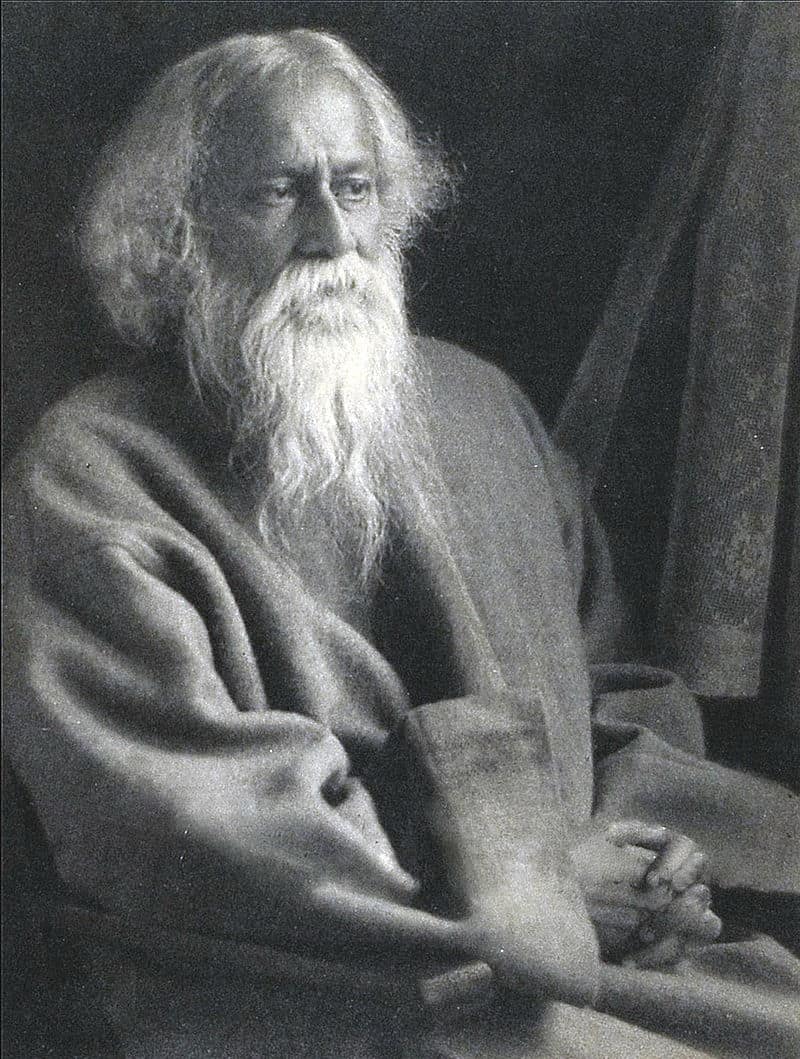
Rabindranath Tagore (born Robindronath Thakur, 7 May 1861 – 7 August 1941; sobriquet Gurudev, Kobiguru, Biswakobi) was a Bengali poet, writer, composer, philosopher and painter. He reshaped Bengali literature and music, as well as Indian art with Contextual Modernism in the late 19th and early 20th centuries. Author of the “profoundly sensitive, fresh and beautiful verse” of Gitanjali, he became in 1913 the first non-European as well as the first lyricist to win the Nobel Prize in Literature. Tagore’s poetic songs were viewed as spiritual and mercurial; however, his “elegant prose and magical poetry” remain largely unknown outside Bengal. He is sometimes referred to as “the Bard of Bengal”.A Bengali Brahmin from Calcutta with ancestral gentry roots in Burdwan district and Jessore, Tagore wrote poetry as an eight-year-old. At the age of sixteen, he released his first substantial poems under the pseudonym Bhānusiṃha (“Sun Lion”), which were seized upon by literary authorities as long-lost classics. By 1877 he graduated to his first short stories and dramas, published under his real name. As a humanist, universalist, internationalist, and ardent anti-nationalist, he denounced the British Raj and advocated independence from Britain. As an exponent of the Bengal Renaissance, he advanced a vast canon that comprised paintings, sketches and doodles, hundreds of texts, and some two thousand songs; his legacy also endures in the institution he founded, Visva-Bharati University.Tagore modernised Bengali art by spurning rigid classical forms and resisting linguistic strictures. His novels, stories, songs, dance-dramas, and essays spoke to topics political and personal. Gitanjali (Song Offerings), Gora (Fair-Faced) and Ghare-Baire (The Home and the World) are his best-known works, and his verse, short stories, and novels were acclaimed—or panned—for their lyricism, colloquialism, naturalism, and unnatural contemplation. His compositions were chosen by two nations as national anthems: India’s “Jana Gana Mana” and Bangladesh’s “Amar Shonar Bangla”. The Sri Lankan national anthem was inspired by his work.
Read More About Rabindranath Tagore / Source
C. V. Raman
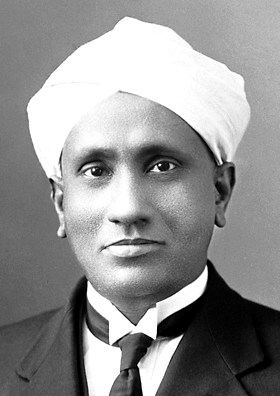
Chandrasekhara Venkata Raman (7 November 1888 – 21 November 1970) was an Indian physicist who made groundbreaking works in the field of light scattering. With his student K. S. Krishnan, he discovered that when light traverses a transparent material, some of the deflected light change wavelength and amplitude. This phenomenon was a new type of scattering of light and was subsequently known as the Raman effect (Raman scattering). Raman won the 1930 Nobel Prize in Physics and was the first Asian person to receive a Nobel Prize in any branch of science.Born to Hindu Tamil Brahmin parents, Raman was a precocious child, completing his secondary and higher secondary education from St Aloysius’ Anglo-Indian High School at the ages of 11 and 13, respectively. He topped bachelor’s degree examination at the University of Madras with honours in physics from Presidency College at age 16. His first research paper, on diffraction of light, was published in 1906 while still a graduate student. The next year he obtained an M.A. degree. He was 19 years of age when he joined the Indian Finance Service in Kolkata as Assistant Accountant General. There he became acquainted with the Indian Association for the Cultivation of Science (IACS), the first research institute in India, which allowed him to do independent research and where he made his major contributions in acoustics and optics.
In 1917, he was appointed as the first Palit Professor of Physics by Ashutosh Mukherjee at the Rajabazar Science College under the University of Calcutta. On his first trip to Europe, seeing the Mediterranean Sea motivated him to correctly describe the reason for the blue colour of the sea as a phenomenon of diffraction. He founded the Indian Journal of Physics in 1926. He and Krishnan discovered on 28 February 1928 a novel phenomenon of light scattering, which they called “modified scattering,” but more famously known as the Raman effect. The day is celebrated by the Government of India as the National Science Day every year. Raman moved to the Indian Institute of Science in Bangalore in 1933 to become its first Indian Director. There he founded the Indian Academy of Sciences the same year. He established the Raman Research Institute in 1948 where he worked to his last days.
In 1954, the Government of India honoured him with the first Bharat Ratna (along with politician C. Rajagopalachari and philosopher Sarvepalli Radhakrishnan), its highest civilian award. He later smashed the medallion in protest against Prime Minister Jawaharlal Nehru’s policies on scientific research.
Read More About C. V. Raman / Source
Amartya Sen
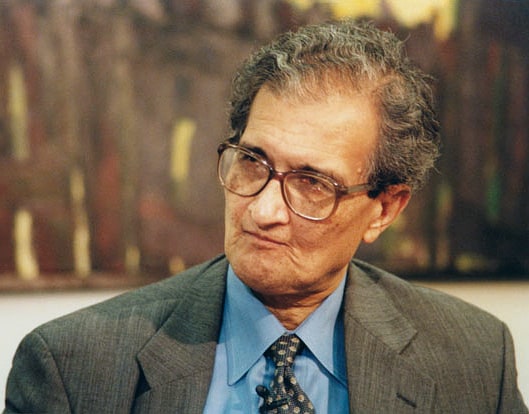
Amartya Kumar Sen (born 3 November 1933) is an Indian economist, who since 1972 has taught and worked in the United Kingdom and the United States. Sen has made contributions to welfare economics, social choice theory, economic and social justice, economic theories of famines, decision theory, development economics, public health, and measures of well-being of countries.
He is currently Thomas W. Lamont University Professor, and Professor of Economics and Philosophy at Harvard University. He was awarded the Nobel Memorial Prize in Economic Sciences in 1998 and India’s Bharat Ratna in 1999 for his work in welfare economics. The German Publishers and Booksellers Association awarded him the 2020 Peace Prize of the German Book Trade for his pioneering scholarship addressing issues of global justice and combating social inequality in education and healthcare.
Read More About Amartya Sen / Source
Kailash Satyarthi
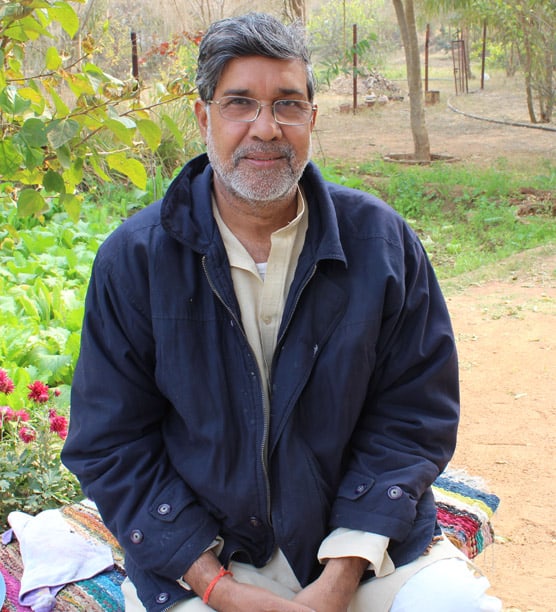
Kailash Satyarthi (born 11 January 1954) is an Indian social reformer who campaigned against child labour in India and advocated the universal right to education. In 2014, he was the co-recipient of the Nobel Peace Prize, along with Malala Yousafzai, “for their struggle against the suppression of children and young people and for the right of all children to education.” He is the founder of multiple social activist organizations, including Bachpan Bachao Andolan, Global March Against Child Labour, Global Campaign for Education and Kailash Satyarthi Children’s Foundation.
Kailash Satyarthi and his team at Bachpan Bachao Andolan have liberated more than 81,000 children in India from child labour, slavery and trafficking. In 1998, Satyarthi conceived and led the Global March against Child Labour, an 80,000 km (ca. 49,710 mi)-long march across 103 countries to put forth a global demand against worst forms of child labour. This became one of the largest social movements ever on behalf of exploited children. The demands of the marchers, which included children and youth (particularly the survivors of trafficking for forced labour, exploitation, sexual abuse, illegal organ transplants, armed conflict, etc.) were reflected in the draft of the ILO Convention 192 on the Worst Forms of Child Labour. The following year, the Convention was unanimously adopted at the ILO Conference in Geneva.
He has served on the board and committee of several international organisations including the Center for Victims of Torture (USA), the International Labor Rights Fund (USA), and the Cocoa Initiative. Satyarthi was among Fortune magazine’s “World’s Greatest Leaders” in 2015 and featured in LinkedIn’s Power Profiles List in 2017 and 2018. Satyarthi led a nationwide march, Bharat Yatra, in India covering 19,000 km (12,000 mi) in 35 days, to demand for legislation against child rape, child sexual abuse and trafficking.
Read More About Kailash Satyarthi / Source
Mother Teresa
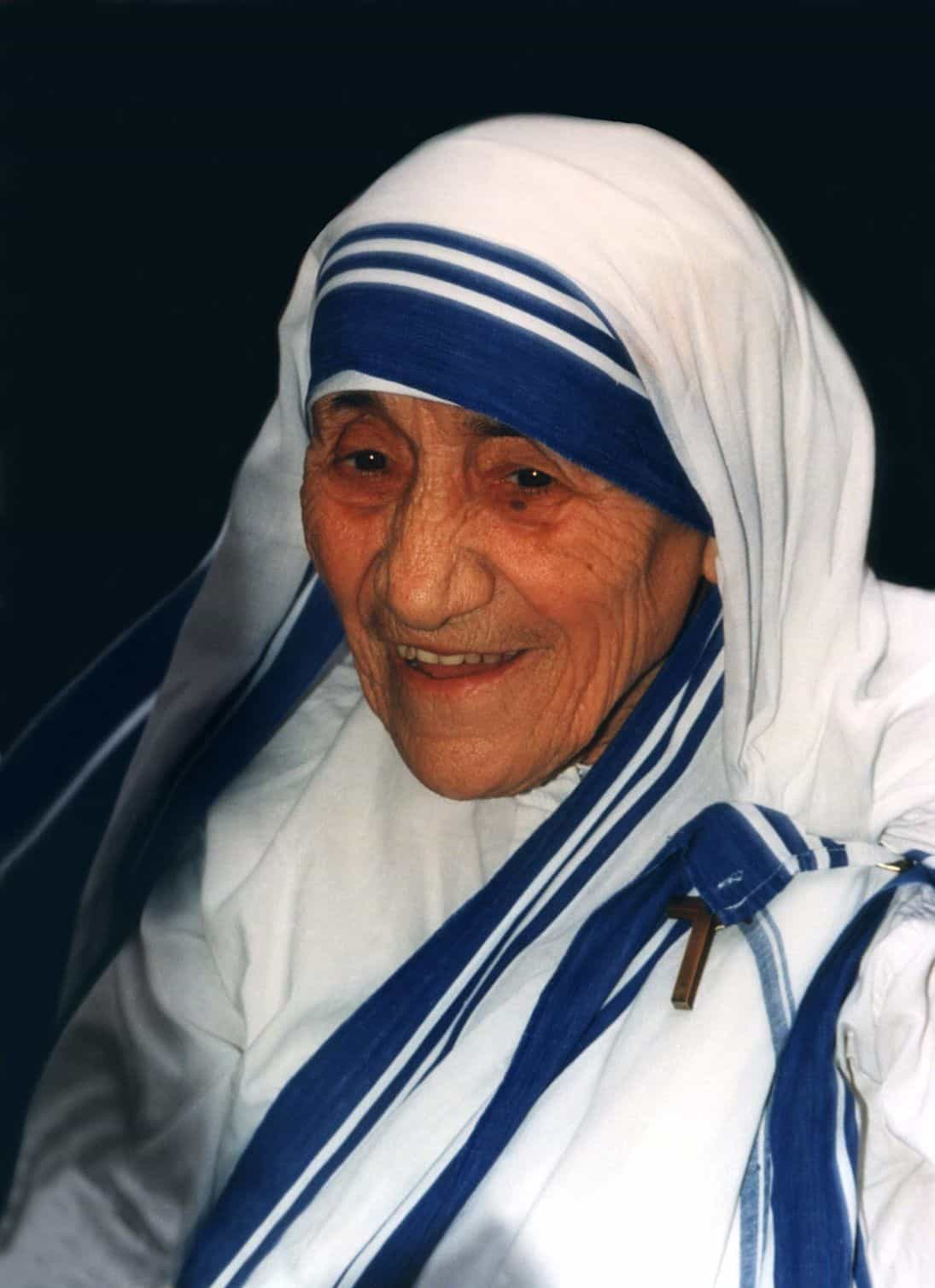
Mother Mary Teresa Bojaxhiu (26 August 1910 – 5 September 1997), honoured in the Catholic Church as Saint Teresa of Calcutta, was an Albanian-Indian Roman Catholic nun and missionary. She was born in Skopje (now the capital of North Macedonia), then part of the Kosovo Vilayet of the Ottoman Empire. After living in Skopje for eighteen years, she moved to Ireland and then to India, where she lived for most of her life.
In 1950, Teresa founded the Missionaries of Charity, a Roman Catholic religious congregation that had over 4,500 nuns and was active in 133 countries in 2012. The congregation manages homes for people who are dying of HIV/AIDS, leprosy and tuberculosis. It also runs soup kitchens, dispensaries, mobile clinics, children’s and family counselling programmes, as well as orphanages and schools. Members take vows of chastity, poverty, and obedience, and also profess a fourth vow – to give “wholehearted free service to the poorest of the poor.”Teresa received a number of honors, including the 1962 Ramon Magsaysay Peace Prize and 1979 Nobel Peace Prize. She was canonised on 4 September 2016, and the anniversary of her death (5 September) is her feast day. A controversial figure during her life and after her death, Teresa was admired by many for her charitable work. She was praised and criticized on various counts, such as for her views on abortion and contraception, and was criticized for poor conditions in her houses for the dying. Her authorized biography was written by Navin Chawla and published in 1992, and she has been the subject of films and other books. On 6 September 2017, Teresa and St. Francis Xavier were named co-patrons of the Roman Catholic Archdiocese of Calcutta.
Read More About Mother Teresa / Source
Har Gobind Khorana
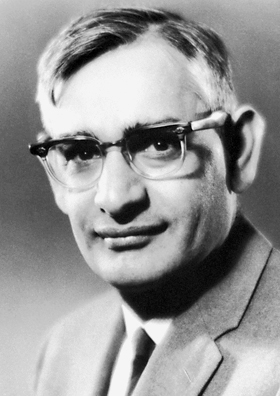
Har Gobind Khorana (9 January 1922 – 9 November 2011) was an Indian American biochemist. While on the faculty of the University of Wisconsin–Madison, he shared the 1968 Nobel Prize for Physiology or Medicine with Marshall W. Nirenberg and Robert W. Holley for research that showed the order of nucleotides in nucleic acids, which carry the genetic code of the cell and control the cell’s synthesis of proteins. Khorana and Nirenberg were also awarded the Louisa Gross Horwitz Prize from Columbia University in the same year.Born in British India, Khorana served on the faculties of three universities in North America. He became a naturalized citizen of the United States in 1966, and received the National Medal of Science in 1987.
Read More About Har Gobind Khorana / Source
Subrahmanyan Chandrasekhar
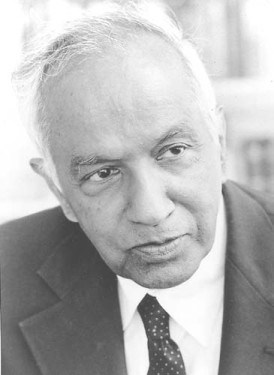
Subrahmanyan Chandrasekhar (19 October 1910 – 21 August 1995) was an Indian-American astrophysicist who spent his professional life in the United States. He was awarded the 1983 Nobel Prize for Physics with William A. Fowler for “…theoretical studies of the physical processes of importance to the structure and evolution of the stars”. His mathematical treatment of stellar evolution yielded many of the current theoretical models of the later evolutionary stages of massive stars and black holes. The Chandrasekhar limit is named after him.
Chandrasekhar worked on a wide variety of physical problems in his lifetime, contributing to the contemporary understanding of stellar structure, white dwarfs, stellar dynamics, stochastic process, radiative transfer, the quantum theory of the hydrogen anion, hydrodynamic and hydromagnetic stability, turbulence, equilibrium and the stability of ellipsoidal figures of equilibrium, general relativity, mathematical theory of black holes and theory of colliding gravitational waves. At the University of Cambridge, he developed a theoretical model explaining the structure of white dwarf stars that took into account the relativistic variation of mass with the velocities of electrons that comprise their degenerate matter. He showed that the mass of a white dwarf could not exceed 1.44 times that of the Sun – the Chandrasekhar limit. Chandrasekhar revised the models of stellar dynamics first outlined by Jan Oort and others by considering the effects of fluctuating gravitational fields within the Milky Way on stars rotating about the galactic centre. His solution to this complex dynamical problem involved a set of twenty partial differential equations, describing a new quantity he termed ‘dynamical friction’, which has the dual effects of decelerating the star and helping to stabilize clusters of stars. Chandrasekhar extended this analysis to the interstellar medium, showing that clouds of galactic gas and dust are distributed very unevenly.
Chandrasekhar studied at Presidency College, Madras (now Chennai) and the University of Cambridge. A long-time professor at the University of Chicago, he did some of his studies at the Yerkes Observatory, and served as editor of The Astrophysical Journal from 1952 to 1971. He was on the faculty at Chicago from 1937 until his death in 1995 at the age of 84, and was the Morton D. Hull Distinguished Service Professor of Theoretical Astrophysics.
Read More About Subrahmanyan Chandrasekhar / Source
Venki Ramakrishnan
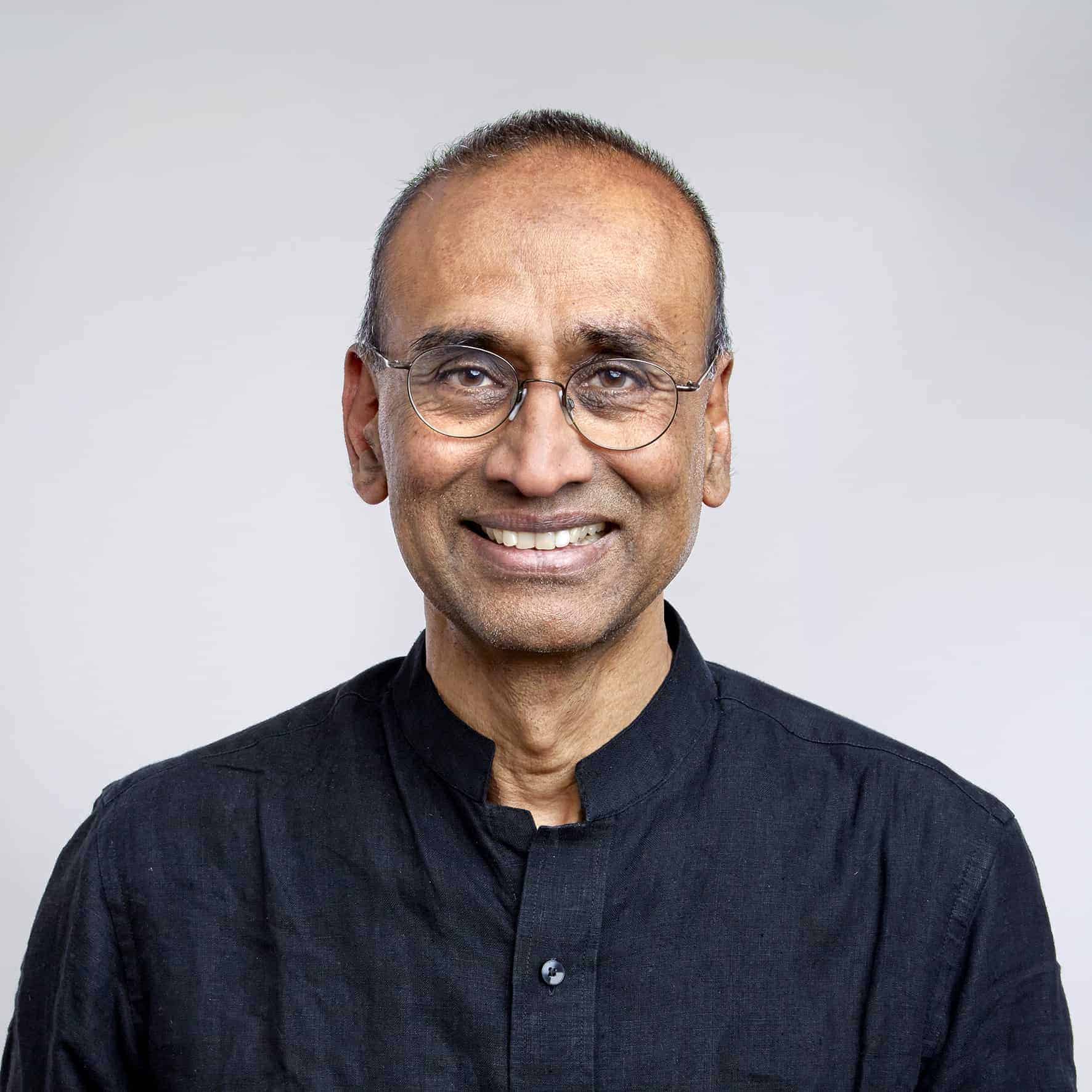
Venkatraman “Venki” Ramakrishnan (born 1952) is an Indian-born British-American structural biologist who shared the 2009 Nobel Prize in Chemistry with Thomas A. Steitz and Ada Yonath, “for studies of the structure and function of the ribosome”..
Since 1999, he has worked as a group leader at the Medical Research Council (MRC) Laboratory of Molecular Biology (LMB) on the Cambridge Biomedical Campus, UK. He served as President of the Royal Society from 2015-2020 .
Read More About Venki Ramakrishnan / Source
V. S. Naipaul
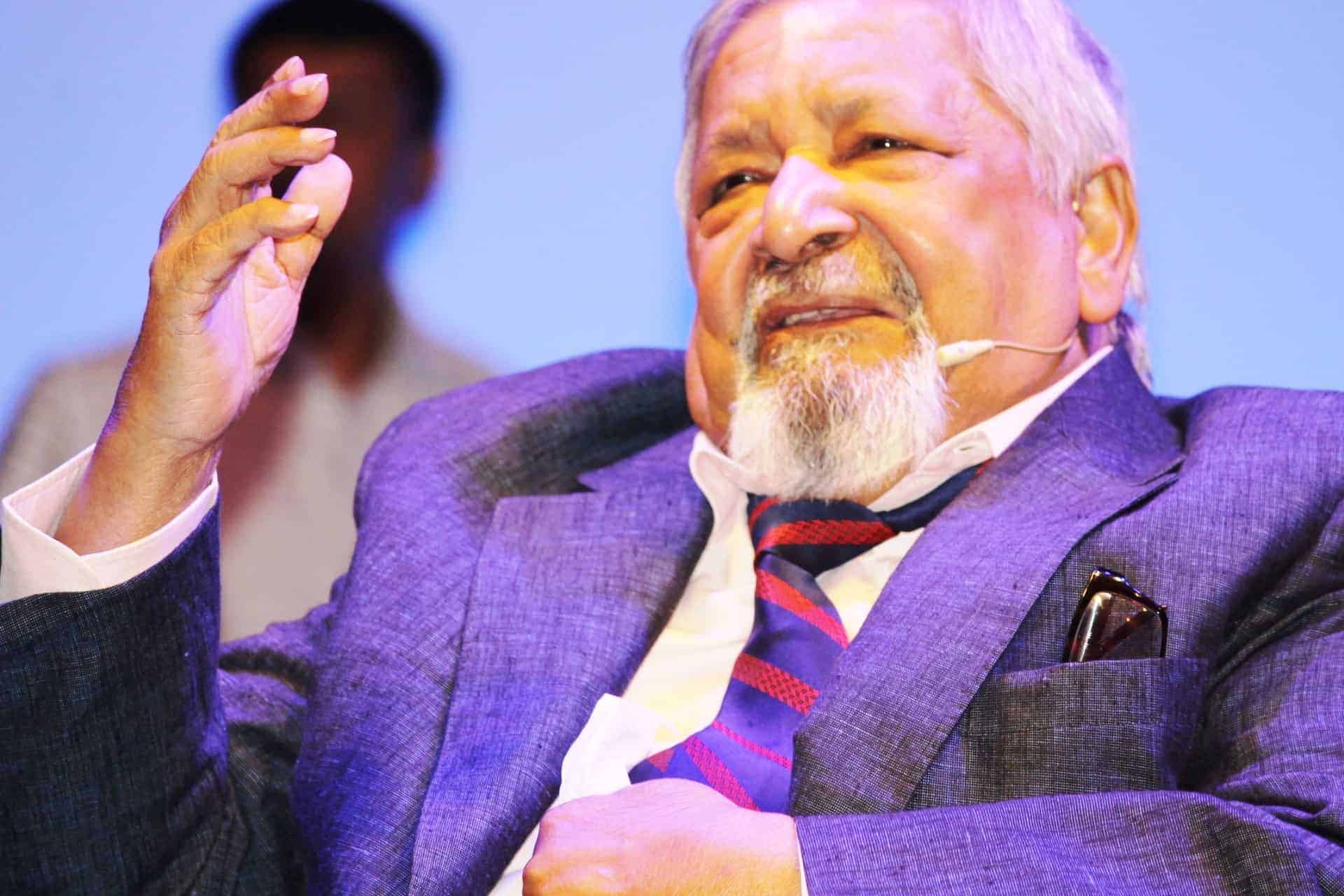
Sir Vidiadhar Surajprasad Naipaul (17 August 1932 – 11 August 2018), most commonly known as V. S. Naipaul, and informally, Vidia Naipaul, was a Trinidad and Tobago-born British writer of works of fiction and nonfiction in English. He is known for his comic early novels set in Trinidad, his bleaker novels of alienation in the wider world, and his vigilant chronicles of life and travels. He wrote in prose that was widely admired, but his views sometimes aroused controversy. He published more than thirty books over fifty years.
Naipaul won the Booker Prize in 1971 for his novel In a Free State. In 1989, he was awarded the Trinity Cross, Trinidad and Tobago’s highest national honour. He received a knighthood in Britain in 1990, and in 2001, the Nobel Prize in Literature.
In the late 19th century, Naipaul’s grandparents had emigrated from India to work in Trinidad’s plantations as indentured servants. His breakthrough novel A House for Mr Biswas was published in 1961. On the fiftieth anniversary of its publication, he dedicated it to Patricia Anne Hale, to whom he was married from 1955 until her death in 1996, and who had served as first reader, editor, and critic of his writings.
Read More About V. S. Naipaul / Source

